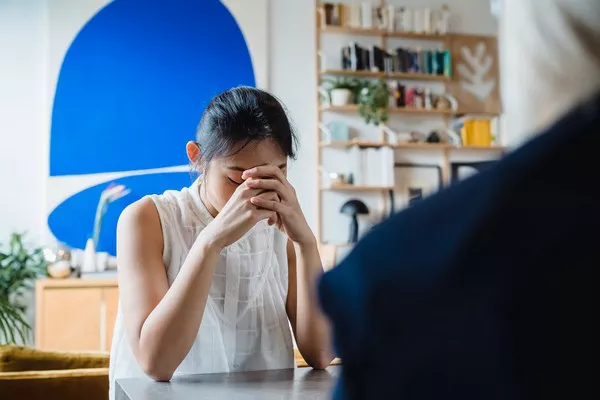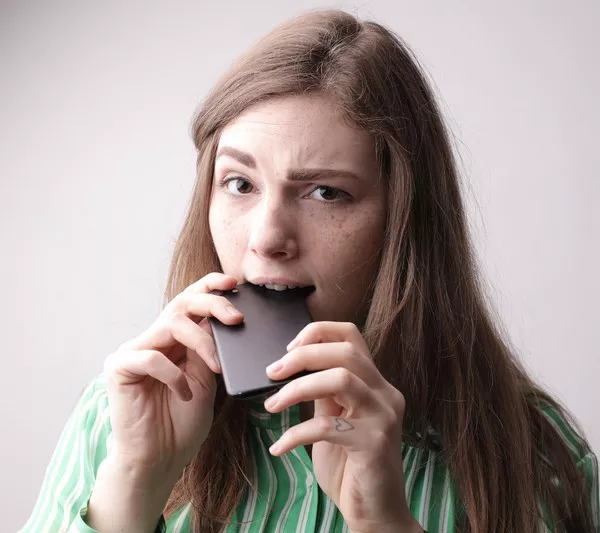Anxiety is a common mental health condition characterized by persistent worry, fear, and nervousness that can significantly impact daily functioning and quality of life. While it’s normal to experience occasional feelings of anxiety in response to stressful situations, individuals with an anxiety disorder may experience intense and overwhelming symptoms that persist over time.
Symptoms of anxiety may include:
- Excessive worrying
- Restlessness or irritability
- Difficulty concentrating
- Muscle tension
- Racing heartbeat
- Sleep disturbances
- Avoidance of triggering situations
Living with anxiety can be challenging, as it can interfere with relationships, work, and overall well-being. However, effective treatments and strategies are available to help individuals manage their symptoms and regain control of their lives.
Evidence-Based Treatments
Several evidence-based treatments have been shown to be effective in managing anxiety:
Cognitive Behavioral Therapy (CBT): CBT is a widely recognized therapeutic approach that focuses on identifying and challenging negative thought patterns and behaviors associated with anxiety. Through CBT, individuals learn coping skills and relaxation techniques to manage their symptoms more effectively.
Medication: Antidepressants, particularly selective serotonin reuptake inhibitors (SSRIs) and serotonin-norepinephrine reuptake inhibitors (SNRIs), are commonly prescribed to treat anxiety disorders. These medications can help regulate neurotransmitter levels in the brain, reducing symptoms of anxiety over time. However, it’s essential to work closely with a healthcare provider to find the right medication and dosage for each individual.
Exposure Therapy: Exposure therapy involves gradually exposing individuals to the situations or stimuli that trigger their anxiety, allowing them to confront their fears in a controlled and supportive environment. Over time, exposure therapy can help desensitize individuals to their triggers and reduce anxiety symptoms.
Mindfulness-Based Interventions: Mindfulness practices, such as meditation, deep breathing exercises, and guided imagery, can help individuals cultivate present-moment awareness and reduce symptoms of anxiety. Research has shown that mindfulness-based interventions can be effective in promoting relaxation and stress reduction.
See Also: How to overcome emotional fear?
Lifestyle Changes
In addition to formal treatments, making lifestyle adjustments can also help manage anxiety:
Regular Exercise: Engaging in regular physical activity, such as walking, jogging, or yoga, can help reduce symptoms of anxiety by promoting the release of endorphins, the body’s natural mood elevators. Aim for at least 30 minutes of moderate exercise most days of the week.
Healthy Diet: Consuming a balanced diet rich in fruits, vegetables, whole grains, and lean proteins can support overall well-being and help regulate mood. Limiting caffeine, alcohol, and processed foods may also help reduce symptoms of anxiety.
Adequate Sleep: Prioritize getting enough sleep each night, as sleep deprivation can exacerbate symptoms of anxiety. Establish a regular sleep schedule and create a relaxing bedtime routine to promote restful sleep.
Stress Management: Practice stress-reduction techniques such as time management, prioritization, and setting boundaries to minimize the impact of stress on anxiety levels. Engaging in hobbies, spending time with loved ones, and participating in activities that bring joy and relaxation can also help alleviate anxiety.
Self-Help Strategies
There are several self-help strategies that individuals can implement to manage anxiety on their own:
Deep Breathing Exercises: Practice deep breathing exercises to promote relaxation and reduce symptoms of anxiety. Try techniques such as diaphragmatic breathing, where you inhale deeply through your nose, hold for a few seconds, and exhale slowly through your mouth.
Progressive Muscle Relaxation: Progressive muscle relaxation involves tensing and then releasing each muscle group in the body to promote relaxation and reduce tension. Start with your toes and work your way up to your head, focusing on each muscle group individually.
Mindfulness Meditation: Incorporate mindfulness meditation into your daily routine to cultivate present-moment awareness and reduce anxiety. Find a quiet space, sit comfortably, and focus your attention on your breath or a specific sensation in the body.
Journaling: Keep a journal to track your thoughts, feelings, and triggers associated with anxiety. Writing can help clarify your emotions and provide insight into patterns or recurring themes that contribute to your anxiety.
Professional Help
While self-help strategies can be beneficial, it’s essential to seek professional help if anxiety symptoms persist or significantly interfere with daily functioning. Mental health professionals who can help include:
Psychiatrists: Medical doctors specializing in the diagnosis and treatment of mental health disorders, including prescribing medication.
Psychologists: Licensed therapists who provide talk therapy and behavioral interventions to address anxiety and other mental health concerns.
Licensed Counselors or Therapists: Trained professionals who offer individual or group therapy to help individuals manage anxiety and develop coping skills.
Resources and Support
For individuals seeking additional support and information on anxiety, several resources are available:
National Alliance on Mental Illness (NAMI): NAMI offers educational resources, support groups, and advocacy initiatives for individuals living with anxiety and other mental health conditions.
Anxiety and Depression Association of America (ADAA): ADAA provides information, resources, and support for individuals affected by anxiety disorders, including online forums and educational webinars.
Crisis Hotlines: In times of crisis or acute distress, individuals can contact crisis hotlines such as the National Suicide Prevention Lifeline (1-800-273-TALK) or Crisis Text Line (text HOME to 741741) for immediate support and assistance.
Conclusion
In conclusion, effective treatments and strategies are available to help individuals manage anxiety and improve their quality of life. By combining evidence-based treatments, lifestyle adjustments, self-help techniques, and professional support, individuals can develop effective coping mechanisms and regain control over their anxiety symptoms. It’s essential to prioritize self-care, seek support when needed, and remember that recovery is possible with the right resources and interventions.
Related topics:



























